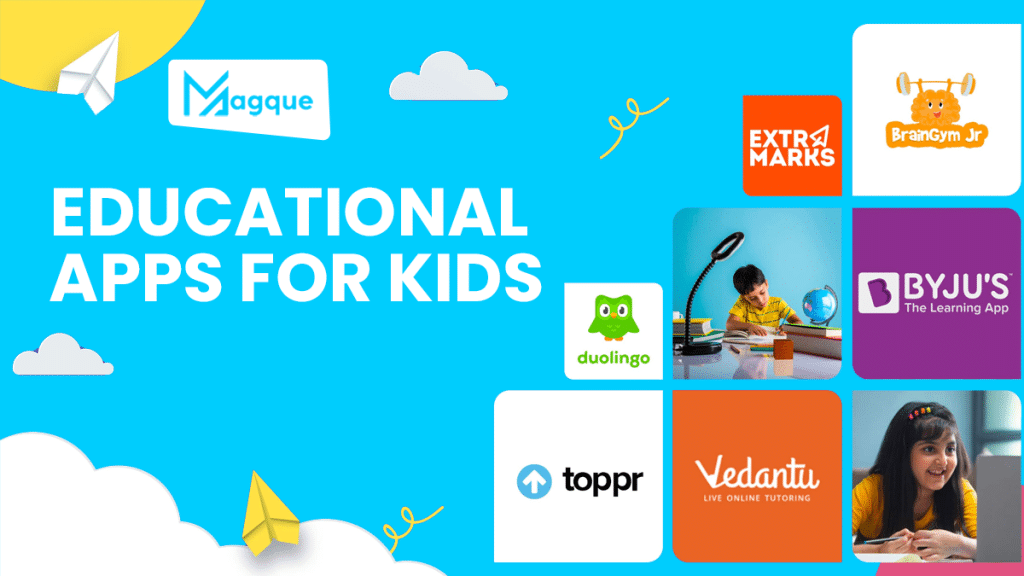Hey there, parents and caregivers! Let’s talk about something that’s on every modern parent’s mind: educational apps for kids. In this digital age, where screens are practically a part of daily life, finding the right balance between screen time and educational content can feel like a never-ending quest. But fear not! Today, we’re diving into the beautiful world of educational apps designed specifically for our little learners.
Why Educational Apps Matter
First things first, why should you bother with educational apps when there’s already so much noise in the digital space? Well, picture this: your child is engrossed in an app that entertains and educates. It’s like sneaking veggies into their favorite dish. They’re— having fun, and you’re silently patting yourself on the back for their newfound knowledge.
Interactive Learning Experience
Educational apps are about more than just drilling facts into young minds. They offer an interactive learning experience that engages children in a way traditional methods often can’t. From colorful animations to playful quizzes, these apps make learning feel like a game, enticing even the most reluctant learners to join in on the fun.
Tailored to Different Learning Styles
One size doesn’t fit all in education; the same goes for educational apps. Whether your child is a visual learner who thrives on seeing images and videos, an auditory learner who absorbs information through sound, or a kinesthetic learner who learns best through hands-on activities, there’s an app tailored to their learning style.
Versatility in Content
Educational apps cover various subjects, from math and science to language and art, allowing children to explore their interests and develop new skills. Whether your little one is fascinated by dinosaurs or dreams of becoming an astronaut, there’s an app that can turn their interests into a learning opportunity.
Parental Control and Monitoring
As much as we want our children to learn and explore independently, safety is always a top priority. Fortunately, many educational apps have built-in parental controls that allow you to monitor your child’s progress, set time limits, and ensure they access age-appropriate content.
Top Educational Apps for Kids
Now that we’ve covered the why let’s discuss the what. With thousands of educational apps flooding the market, finding the gems among the rubble can be overwhelming. Here are a few tried-and-tested favorites to get you started:
- ABCmouse: Perfect for preschoolers and early elementary learners, ABCmouse offers a comprehensive curriculum covering everything from reading and math to art and music.
- Khan Academy Kids: Developed by education experts, Khan Academy Kids offers a personalized learning experience with interactive activities and games designed to build critical skills.
- Duolingo ABC: Are you looking to introduce your little one to a new language? Duolingo ABC makes learning letters, phonics, and basic vocabulary fun and engaging.
- Endless Alphabet: With adorable monsters and silly animations, Endless Alphabet helps children learn the alphabet and expand their vocabulary through interactive puzzles and games.
- Sago Mini World: Bursting with creativity, Sago Mini World offers a collection of mini-games and activities that encourage imaginative play and problem-solving skills.
In Conclusion
Educational apps for kids are not just a passing trend – they’re a valuable resource for parents looking to supplement their children’s learning journey in a fun and interactive way. So embrace the digital age, and let your child discover the wonders of learning through play! With the right apps by their side, the possibilities are endless. And be sure to explore Magque, your go-to source for the latest and most intriguing updates in the realms of informative tips & reviews!
FAQs
Q1. Are educational apps suitable for all ages?
Yes, educational apps are designed to cater to a wide range of ages, from toddlers to teens. There are apps specifically tailored to different developmental stages, ensuring that children of all ages can find engaging and age-appropriate content.
Q2. How do I know if an educational app is high-quality?
Look for apps that reputable companies or educational experts develop. Check reviews and ratings from other parents to understand the app’s effectiveness and suitability for your child. Consider the app’s content, user interface, and educational value.
Q3. Do educational apps replace traditional learning methods?
Educational apps should be seen as a supplement to, rather than a replacement for, traditional learning methods. While apps can provide valuable learning experiences, they should be used with other educational activities such as reading books, engaging in hands-on experiments, and participating in group discussions.
Q4. How much screen time is appropriate for kids using educational apps?
The American Academy of Pediatrics recommends limiting screen time for children aged 2 to 5 to no more than one hour per day of high-quality programming. However, it’s important to balance screen time with other activities such as outdoor play, social interaction, and creative play.
Q5. Are educational apps safe for kids to use?
Most reputable educational apps prioritize child safety and privacy. Look for apps that comply with strict privacy regulations and offer features such as parental controls and ad-free experiences. It’s also important to supervise young children using apps and teach them about online safety practices.
Read Also This:- Educational Apps for Continuous Learning
